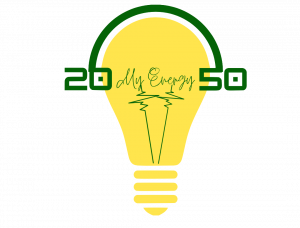This week we speak with Marco Schletz, a research associate at Data-Driven EnviroLab, and an innovation fellow at the Open Earth Foundation. Marco holds a PhD from the Technical University of Denmark. It is the research for this PhD and the related publications that describes both the present and future uses of blockchain technology as a means for tackling climate change.
In this episode we delve into Marco’s research on blockchain and how it can assist verification of projects addressing climate change. This spurs both greater efficiency in oversight and reduces transaction costs for ensuring climate change is addressed through meaningful action.
The purpose of the MyEnergy2050 podcast is to promote meaningful action around climate change. This is why I’m excited to have Marco on to discuss his PhD research on blockchain and the potential it holds to ensure commitments made in the Paris Agreement are fulfilled no matter where in the world the projects are.
Marco and I have a long discussion on blockchain, we cover the basic concepts of what a blockchain is, why it can promote transparency and the problems with our current financial system, which makes financial transactions costly and why blockchain replaces our current bankers and financiers. With blockchain and cryptocurrencies, say good bye to both expensive corporate bank headquarters and the carbon footprint produced from the corp of office workers.
In the first half of the episode we discuss what blockchain is, and we stay largely with cryptocurrencies like bitcoin. In the second half, we get more grounded and discuss how blockchain can actually work to connect communities and businesses around the world. Blockchain can hold granular information, so we can actually know, who is making an effort to save the environment for us. So while we fly places, we also buy credits from other places, to mitigate our environmental damage.
A final note, is don’t be scared by the terminology in this episode if you don’t know what blockchain is. We hopefully explain throughout the episode what it is, and how it works. Marco does a good job of breaking it down by comparing it to waking in a bar and ordering a drink. So if you know how to drink in a bar, you can understand what a blockchain is.
Dr. Michael LaBelle is an associate professor at Central European University in the Department of Environmental Sciences. He produces the My Energy 2050 podcast to change how we communicate and improve the energy transition.
